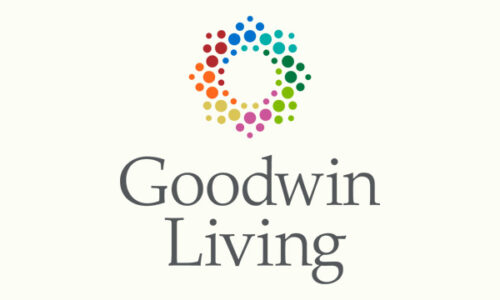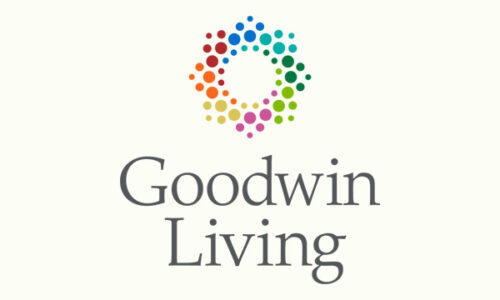January 28, 2021
Your Privacy is Your Security: Protecting Your Data Online
by Amanda Ranowsky
We’ve been living in the modern Digital Age for decades. 2020 especially cast a spotlight on the connectivity that current technology affords us. For nearly a year now, we’ve been spending even more time online. Teleworking, video calls with friends, shopping online – activities we typically enjoyed in person before the pandemic – have shifted to online spaces. We have even transitioned to telehealth appointments. Even when using highly secured systems intended to protect our personal information, this shift means that many of us are sharing more and more of our personal data online.
Older adults are no exception. In fact, their increased reliance on electronic devices to be able to connect with the outside world has meant that older adults are improving their tech literacy. As older adults become more comfortable using technology, it’s all the more critical that they know how to protect their information, too.
The issue of data privacy is more important than ever. As we recognize Data Privacy Day this January 28, we join a global effort to generate awareness about the importance of data privacy and highlight ways you can make sure your personal information is protected.
Own Your Privacy
The 2021 theme for Data Privacy Day, as identified by the National Cyber Security Alliance, is “Own Your Privacy”. This initiative encourages people to take control of their privacy by learning how to protect their valuable data online. To further this aim, we’ll explore some basic measures you can take to protect your privacy online.
But first, what does data privacy actually mean?
Data privacy is your control over how, when and to what extent your personal information is shared with or communicated to others. This could be anything from basic information such as your name, location and contact information, to highly sensitive information such as your social security number, bank account access or credit card numbers.
With a quick online search, you can find a plethora of tips and tricks to protect your data online. We did some of the work for you and would like to offer these ideas and resources to get you started.
Secure and Safe
When tackling your data privacy, it’s always best to start from a solid foundation—the security of your home internet network. As this article from Wired points out “Your router is perhaps the most important gadget in your home. It checks all incoming and outgoing traffic, acting as a sentry to make sure that nothing dangerous comes in and nothing sensitive goes out.”
“Wi-Fi security applies to the connection between your device (computer, phone, etc.) and the wireless access point,” said David Fowler, our corporate director of Information Technology. “If someone gains access to an unsecured Wi-Fi network, they could also gain access to any devices connected to that network.”
Goodwin Living offers Wi-Fi free to residents, and takes steps to ensure that our network is secure. “Residents have access to a Wi-Fi network that offers the most secure encryption available (WPA2-Enterprise),” said David. “This ensures their data cannot be accessed by anyone else via the wireless connection. It is completely secure until it leaves the Goodwin Living firewalls and is on the internet.”
The Wired article offers more tips on how to secure your routers. Your internet provider should also be able to provide more suggestions for making your Wi-Fi router secure. Visit their website or contact their customer service department if you’re not sure where to start.
Now that you’ve addressed router security, the next step is to be aware of the security on the websites you visit on the internet. “This is where https comes into play,” said David. When https is enabled, a website can securely transmit sensitive data over the internet. “Information routed through https websites is encrypted, so only the intended destination can read it,” David explained. Before submitting any sensitive information – like credit card details for online transactions – make sure the website page you’re using has a URL starting with “https” (The s stands for secure!).
Finally, create strong, unique passwords for every account you establish. We’re not just talking bank accounts here, although you certainly want to take extra care when creating passwords for your bank account! Any online shopping accounts, memberships and social media profiles need strong passwords to protect your information. Avoid using things like birthdays, pets’ names or anniversary dates as your passwords. Aim for passwords that are at least 12 characters long and that use a combination of letters, symbols and numbers.
Share with Care
Many online services offer you the option to set your own privacy settings, which determine what information is shared with whom. A good example of this is Facebook, which lets you choose who can see your posts. Instead of sharing your posts with the public – meaning anyone and everyone in the world could see it – consider limiting who can see your posts to only your Friends. (With Facebook, you can set a default privacy setting for your posts and also change the settings on an individual post.)
The National Cyber Security Alliance offers a whole host of direct links to take you straight to where you can update your privacy settings on many popular online services.
What you share on the internet, be it photos, blogs, posts, etc. – assume that it will live on the internet forever, and that it could be accessed by anyone. Don’t share anything that you wouldn’t be happy for everyone, including those you don’t know, to see.
Spot a Scam
Older adults can be particularly vulnerable to internet scams, and they are certainly a demographic that scammers heavily target. In 2019, more than 68,000 adults over age 60 lost a total of more than $835 million in internet scams.
Internet scams often involve the scammer trying to trick you into sharing personal information, which could then be used for identity theft. Email is one of the most popular avenues that an internet scammer will use to target you. A few tips and tricks can help you avoid being caught in their trap.
First, utilize your email provider’s spam filter. It should automatically catch a lot of the more obvious attacks, but you can help it out by marking unsolicited email as spam. Spam can be defined as any email you receive from a person or a company that you don’t know and that you didn’t request.
If anything about the email looks odd, whether it’s a strange email address that supposedly belongs to a friend or an email that uses unexpectedly poor grammar, “better safe than sorry” is the mantra to follow. Mark it as Spam or delete it.
Anything that sounds too good to be true (“You won an all-expenses paid trip to New Zealand! Click here to accept your prize!”) or that sounds like a scare tactic (“You owe $1000 to the IRS. Click here to pay now, or you’ll go to jail.”) is very likely spam, too.
You should avoid clicking on any links in an email that didn’t come from someone you know and trust. If you’re worried that you might discard something genuine, find alternative ways to look into the email’s claims – just don’t click the link!
There are many resources available to educate yourself on how to spot an online scam, including this creative quiz. Spend some time learning about the ways scammers can target you so that you can avoid becoming their next victim.
Simple Steps for a More Secure Future
Taking a few basic steps like those listed in this article can go a long way to ensuring your data is protected online. To explore the issue of data privacy further, here are a few additional resources:
- The Senior’s Guide to Online Safety
- AARP Strategies for Staying Safe and Secure Online
- 10 Cybersecurity Best Practices for Older Adults
Happy Data Privacy Day!
___________________
As Marketing & Communications Specialist, Amanda Ranowsky partners with colleagues throughout Goodwin Living Incorporated to tell our stories and raise brand awareness. From printed collateral to digital marketing, Amanda covers many bases. Before joining GHI, Amanda worked for a small, family-owned business where she gained experience in content marketing. Amanda’s creative expression extends beyond the office. She is an active member of community theater and chorus groups.





